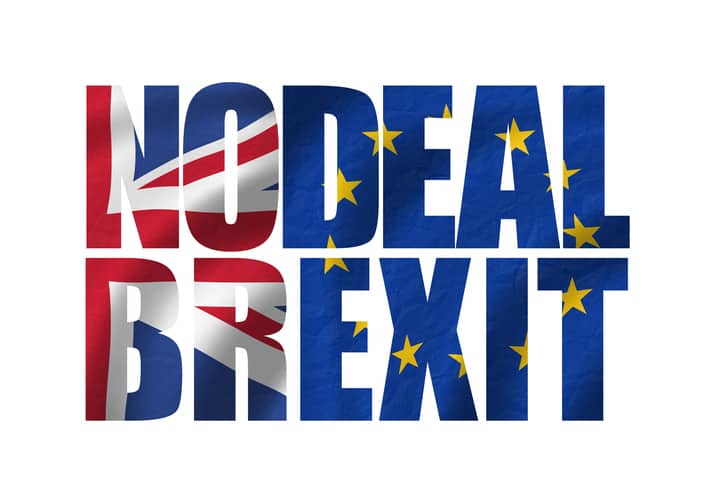As we creep ever closer to 29 March 2019, the reality of a no-deal Brexit is at the forefront of everyone’s mind.
What Britain will look like after it leaves the EU is still unclear, and the impact is still unknown. A no-deal situation would mean that the UK would leave the European Union with no agreement in place and that it would follow World Trade Organization rules to trade with the EU and other countries, while trying to negotiate free-trade deals.
But thinking smaller scale — that is, how Brexit might impact us on a personal level — could a no-deal Brexit impact UK credit card users?
The main changes
The key changes for UK credit card users would be that payments would no longer be covered by the surcharging ban, and an increase in the cost of cross-border payments.
The surcharging ban was introduced in January 2018 and currently prevents businesses from being able to charge consumers for using a specific payment method. If the UK leaves the EU without a deal, then payments will no longer be covered by this ban. According to government data, surcharging cost UK credit card users £166m in 2015.
Under a no-deal Brexit, credit card users would also face increased costs and slower processing times for euro transactions. Under the current situation, UK based payment service providers have direct access to central payment infrastructures such as TARGET2 and the Single Euro Payments Area (SEPA). If Britain leaves the EU and if there isn’t a deal in place to keep access to these services, the cost of card payments between the UK and EU is likely to increase.
Would this directly affect me?
The main change that could affect you as a UK credit card user is the absence of the surcharge ban. Essentially the lack of the ban would mean that retailers would be able to charge additional fees on different type of payments, meaning you could be penalised for using a particular payment method.
As with anything to do with Brexit, it is difficult to predict how retailers will react, but the reality is that with a no-deal Brexit, there will no longer be any legislation in place to prevent the introduction of an additional charge, for example for using your Mastercard to make a payment online. Therefore, you could face increased charges for using your credit card.
Meanwhile, if you use your card to make a lot of cross-border transactions, you are likely to see further impacts of a no-deal Brexit: increased costs for transactions and slower processing times. Additionally, Britons visiting the EU could face extra card charges as a result of UK payment providers no longer having access to the EU’s central payments infrastructure.
Changes to consumer protection
One final element of a no-deal Brexit to consider is changes to consumer protection laws.
Currently, if you were to buy an item from an EU-based trader and the item did not arrive or there was an issue, you could use UK law and UK courts for redress, and this would be recognised and enforced by the EU. In a no-deal situation, you could lose this safety net and no longer be able to effectively seek compensation from an EU retailer – something to be aware of if you plan on using your credit card to purchase goods and services from retailers in the EU.
Thinking about escaping Brexit stress by taking a holiday? Packing one of these top travel credit cards could make your holiday even more relaxing.







